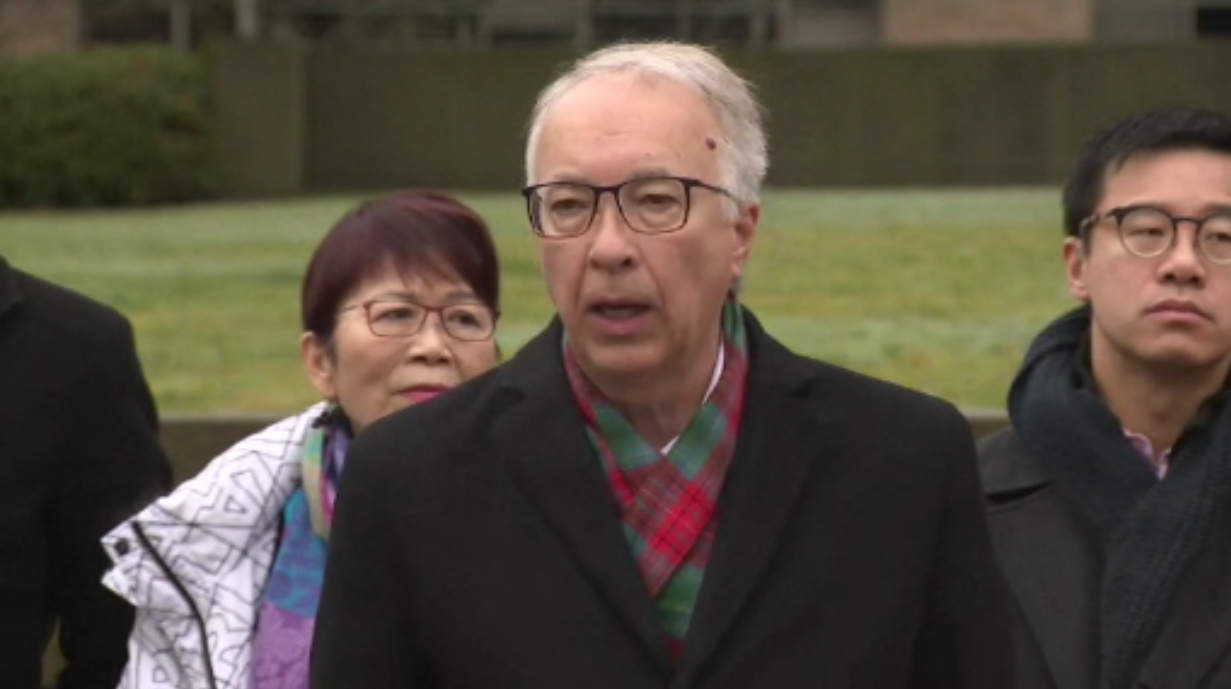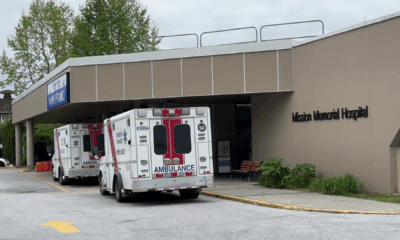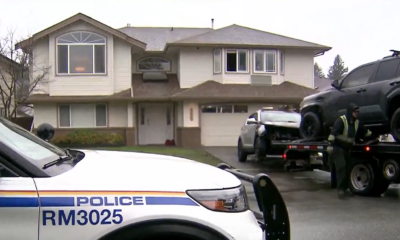Local News
B.C. Conservatives rally in Richmond after supportive housing cancelled

Less than a week after seeing a proposed supportive housing project cancelled, a group of B.C. conservative politicians gathered in Richmond Monday, bemoaning the provincial NDP’s policy on illicit drug use.
Richmond city council and Mayor Malcolm Brodie announced Thursday, Feb. 13, that the city would be stopping work on a supportive housing project at Cambie Road and Sexsmith Road.
The provincial government had previously paused work on the controversial project in August. In early February, B.C. Housing Minister Ravi Kahlon said that after reviews of five alternative locations, the project would proceed in its original location.
But Brodie cited public outcry, including from the group known as Keep Richmond Safe, as the reason for the ultimate cancellation.
Four days since its desired result was realized, the group organized a media event with BC Conservatives Leader John Rustad on the holiday Monday.
“I just want to thank Richmond council in terms of listening to the people who’ve reached out here in Richmond. The people who’ve reached out to say, ‘No, we don’t want this in our community,’” said Rustad.
“Unfortunately, the government has the ability to override the council and force something through if that’s what they wanted. The [BC] NDP government has promised that they would not move forward with this budget before the election, and here we are, just four or five months later. What have they done? They broke in the promise.”
In fact, the provincial government explicitly only suspended the project temporarily in August to assess other options — though critics have called the timing of the suspension “political,” given the October election.
Rustad says his party stands with Keep Richmond Safe, advocating for “abstinence-based treatment.”
Keep Richmond Safe member and MLA for Richmond-Bridgeport, Teresa Wat, says the cancellation of the project is proof that public outcry can “make a difference.”
“But make no mistake, the NDP’s dangerous drug policy will continue across British Columbia. They have decriminalized [illicit] drugs further on the streets with so-called ‘safe supply’ and allowed crimes to spiral out of control,” Wat claimed.
In fact, the BC NDP implemented the decriminalization of small amounts of illicit drugs like opioids, cocaine, and meth in Jan., 2023 — meant to be a three-year pilot aimed at reducing the stigma and criminalization around illicit drug use, often a barrier for users seeking help — But in April of 2024, after public outcry, the province announced it was radically altering the pilot, with Premier David Eby saying he was asking Ottawa to amend the federal exemption to the Controlled Drugs and Substances Act that allowed the project to happen.
The amendment was granted in May. It did not recriminalize drug possession in a private residence, where someone is legally sheltering, or at overdose prevention sites.
Additionally, the BC Coroners Service says toxic drug deaths in British Columbia were down 13 per cent last year, with the toll now lower than any year since 2020.
Rustad and the others repeatedly called for an increase in addictions “treatment” Monday — though the group presented a loose concensus on its definition — as an alternative to or priority over housing people who may struggle with addiction in Richmond.
Rustad insisted that the provincial government may still force the project forward and promised that his party will push instead for a comprehensive plan for addictions treatment.
Last week, Kahlon expressed his disappointment with the cancellation but said the province is virtually powerless to move forward with the project at the Cambie-Sexsmith location.
“The unfortunate situation for us now is, if the city doesn’t want to proceed with that site, it means that site is no longer viable. We will now need to go back to the city and ask them where they want this supportive housing. Because we have 90 people plus that are living in places where leases will expire, and very soon. Those people, they can’t find another place, will be in parks, sleeping in front of businesses, and that is not safe for the community,” said Kahlon.












